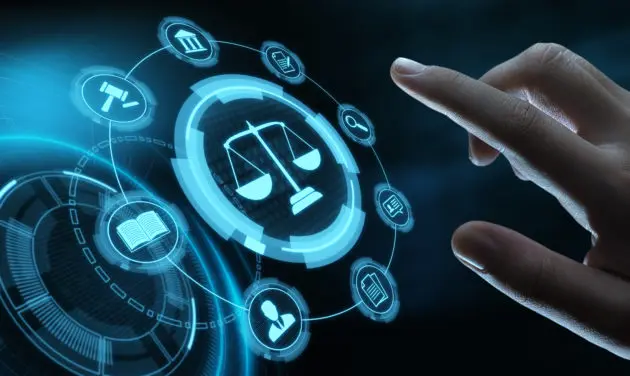Empowering Legal Solutions in the Digital Age

In today’s rapidly evolving world, where information and services are increasingly accessible through digital means, law has not remained untouched. An expert online law firm has become a powerful and convenient resource for individuals seeking expert legal counsel and guidance. This article delves into the experiences of online law experts, exploring how they serve as virtual legal counsel and empower individuals with the knowledge and support they need.
The Rise of Online Law Firms
The internet has ushered in transformative changes in the delivery of legal services, expanding options beyond traditional brick-and-mortar law firms. An expert online law firm, equipped with experienced attorneys, has emerged as a prominent player in providing legal advice, representation, and solutions through digital platforms. This shift transcends geographical boundaries, making expert legal counsel accessible to a broader audience. As a cost-effective and efficient alternative, virtual legal counsellors are well-versed in a range of legal domains, ensuring that clients receive tailored guidance and support. This digital evolution has redefined the landscape of legal assistance, offering individuals a convenient and versatile avenue for addressing their legal needs.
Accessibility Without Boundaries
One of the most significant advantages of online law firms is the unparalleled accessibility they provide. Geographical constraints and physical distance are no longer impediments when seeking legal counsel. Individuals can access legal expertise from the comfort of their homes, eliminating the need for time-consuming commutes and face-to-face meetings. This accessibility transcends borders, allowing clients to connect with experienced attorneys regardless of their location. Whether one resides in a bustling city or a remote area, online law firms bridge the gap, ensuring that legal assistance is just a click away, revolutionising the way individuals access and engage with legal services.
Expertise Across a Spectrum of Legal Areas
Online law firms typically boast diverse attorneys with expertise in various legal areas. These virtual legal counsellors cover different legal domains, from family law and estate planning to business law and intellectual property rights. Clients can confidently navigate complex legal matters knowing they have access to professionals well-versed in the intricacies of their specific case.
Cost-Effective Legal Solutions
Online law firms often offer cost-effective legal solutions compared to traditional counterparts. By operating primarily in the digital space, they can streamline operations, reduce overhead costs, and pass on these savings to their clients. This cost-efficiency makes quality legal assistance more accessible to more individuals.
Confidentiality and Security
Concerns about the security and confidentiality of sensitive legal matters are natural. Online law firms prioritise data security and privacy by employing robust encryption and secure communication channels. Clients can rest assured that all their private information remains safeguarded while receiving legal counsel online.
Efficient Communication Channels
Effective communication is paramount in legal matters. Online law firms utilise various communication tools, including emails, video conferencing, and secure messaging platforms, to ensure seamless and efficient interactions between clients and their legal counsellors. This facilitates prompt responses to queries and concerns, making the legal process more convenient.
Personalized Legal Strategies
Online law firms recognize that each case is unique, requiring more than a one-size-fits-all approach. Virtual legal counsellors take the time to understand each client’s situation, tailoring legal strategies and advice to meet individual needs. This personalised approach ensures that clients get relevant and practical solutions.
Flexible Scheduling
The modern world operates around busy schedules, and online law firms adapt accordingly. Clients can schedule consultations and meetings at times that suit them best, whether during traditional office hours or outside of them. This flexibility in scheduling allows individuals to seek legal assistance without disrupting their daily routines.
Empowering Clients with Knowledge
Online law firms are not just about providing solutions; they are also about empowering clients with knowledge. These platforms educate individuals about their rights and responsibilities through informative resources, articles, and legal guides. This empowerment enables the clients to make informed decisions and actively participate in resolving their legal issues.
Legal Representation When Needed
While online law firms offer valuable resources and guidance, they are also equipped to provide legal representation when necessary. Whether negotiating settlements, representing clients in court, or drafting legal documents, virtual legal counsellors are prepared to advocate for their client’s interests with professionalism and expertise.
Conclusion
Online law experts have emerged as a dynamic and indispensable resource for individuals seeking legal assistance in the digital age. Offering accessibility, expertise, cost-efficiency, and personalised solutions, these virtual legal counsellors empower clients to navigate the complexities of the legal landscape with confidence and convenience. With the assurance of confidentiality, flexible communication channels, and a commitment to knowledge sharing, online law firms are poised to continue reshaping how individuals access and experience legal counsel in the modern world.





